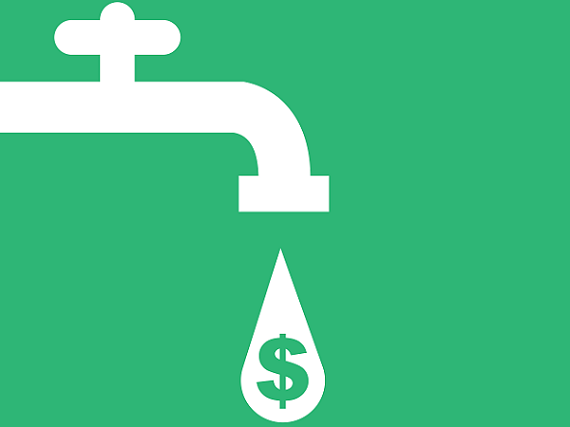
(Come see Vator Splash LA on October 15. Speakers will include Adam Goldenberg Founder & CEO of JustFab; Brian Lee. Co-Founder & CEO of The Honest Company; Michael Dubin, Founder & CEO of Dollar Shave Club; and TJ Sassani, Founder & CEO of zozi. Get your tickets here!)
It’s always interesting to get a peek into the financials of a private company. There’s a good reason they often don’t want you to see what’s happening behind the scenes, and that is because the numbers aren’t going to be pretty. That’s also why so many of us eagerly await IPOs from major companies like Twitter and Etsy. Until then all we can do is guess, for the most part.
Unless someone leaks those documents, which is what happened to Uber earlier this month, and has now happened to Snapchat as well.
Gawker has obtained documents showing the company’s financials for the first 10 months of 2014 and they show exactly what you would think for a company that, until then, wasn’t monetizing: it was hemorrhaging money.
From January to the middle of November last year, Snapchat made $3.1 million, but wound up with a net loss of $128 million, with the biggest chunk, over $48 million, going toward something called “extraordinary expense,” whatever that means .
Another $47 million wound up going toward its product development, $15 million for labor costs and $13 million for outside services.
$128 million is obviously nothing to sneeze at, it’s also not as much as you might think, especially when compared to the amount that Uber has been losing recently. Those leaked documents, also from Gawker (naturally), show the e-hailing company losing $56 million in 2013, but then having those losses balloon to $52 million in the first quarter of 2014, and an astounding $108 million in the second quarter.
According to numbers obtained by Bloomberg, Uber the company had losses of $470 million on sales of $415 million. Suddenly $128 million doesn’t seem so bad.
These numbers are also slightly unfair because they show the time period right before Snapchat started actually making money. The company started running ads in October in its Recent Updates section, where users are able to post Stories, which remain visible for 24 hours. Users would be able to choose whether or not they wanted to see those ads.
It got really serious about them at the beginning of this year. In January it launched the Discover feature, as a way for editorial teams to put up their own Stories, which also, of course, include advertisements.
Discover is made up of 11 unique channels: one for each media partner, plus a Snapchat channel. Those channels include ESPN, Comedy Central, Cosmopolitan, Daily Mail, Food Network, National Geographic, People, Yahoo News, CNN, Vice and Warner Music. Each one will feature photos, videos and other long form content.
Some big summer movies, including Mad Max: Fury Road, Pitch Perfect 2 and Jurassic World have all been using the app for promotion, as have brands including McDonald’s, Samsung and Macy’s.
There are other potential ways that Snapchat could make money as well.
In November, Snapchat teamed with Square for the launch of a payments feature called Snapcash. All a user has to do is swipe into Snapchat, and using the text feature, type in a dollar sign with the amount you want to send and hit the green button. The payment will then be sent directly to the recipient, who, again, puts in the debit card number to receive the money.
Snapchat is also looking at some new verticals.
In e-mails exposed during the Sony hacks, it was revealed that there have been talks between Snapchat CEO Evan Spiegel and Dennis Kooker; President of Global Digital Business & U.S. Sales at Sony, about bringing music onto the platform.
So, while these numbers are a peak into what was going on with Snapchat last year, the numbers don’t reflect what is happening there now.
A Snapchat spokesperson declined to confirmed the authenticity of these documents, or to comment on the report.
(Image source: srepropertymanagement.com)




















